The New York State Department of Labor has launched an investigation into Shen Yun Performing Arts
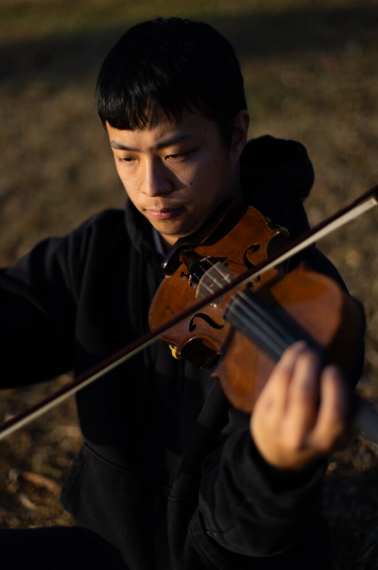
Pictured: After joining Shen Yun as a student musician, Eugene Liu participated in 200 performances, but never earned more than $300 a month. New York State regulators have opened an investigation into the group's labor treatment. The New York Times
For years, a prominent dance company based in New York State relied on children and youth to perform around the world, earning tens of millions of dollars each season with little or no compensation for underage performers. Labor regulators in New York have been doing nothing about it.
That has changed in recent months, and the New York State Department of Labor is investigating the company, known as Shen Yun Arts.
The agency, which enforces laws on child labor, overtime and minimum wages, declined to say what it was investigating. But the investigation began after the New York Times challenged the issue, which in August documented multiple instances of questionable labor practices by the group, described by legal experts and former performers.
The Shen Yun Arts Troupe, run by the Falun Gong religious group in a 160-hectare, heavily guarded campus in Orange County, northwest of New York City, said former performers require performers to maintain a grueling, intensive tour schedule and train in harsh conditions.
Many of the young dancers and musicians are the children of devout Falun Gong practitioners who have come from overseas to attend school at Longquan Temple, the company's headquarters. They receive a full scholarship, plus room and board, and are told that performing is also part of their studies. Many don't get paid anything for their first year touring.
"It seems entirely plausible," said violinist Eugene Liu, who attended 200 performances with Shen Yun in two years from the age of 15 but never earned more than $300 a month. "But if you consider that these people don't have the capacity to negotiate any labor and wage status, then I don't know if that is tenable."
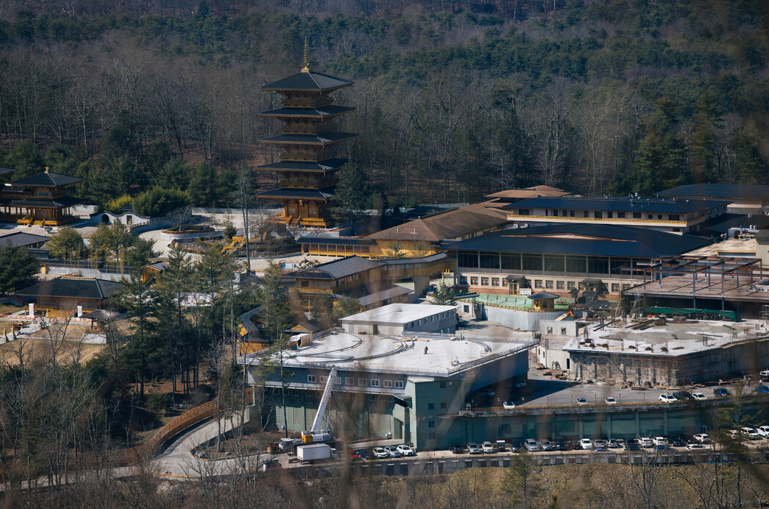
Pictured: Shen Yun's young dancers and musicians train at a heavily guarded campus in Orange County, New York. Many people live in the park. The New York Times
In fact, The New York Times found that Shen Yun appears to have been violating a state law designed to protect underage performers for years. The law requires performing groups to obtain state certification before using performers under the age of 18 and requires those performers to have work permits.
The law also regulates working hours, rest periods, and education, including time for employers to set aside for academic guidance during the working day. The Act also stipulates that 15% of a performer's income should be deposited into a trust account, but does not specify whether or how much the performer should be remunerated.
Former Shen Yun performers said their studies during the tour were mostly spent in journaling or doing homework between performances. They don't know about work permits or trust accounts.
The law does state that performers "in churches, colleges, or schools, including dance or drama schools" are exempt from applying for work permits. But Michael Metzner, an entertainment lawyer who specializes in labor issues, said the exemption applies to things like school performances or choirs, not to professional touring groups like Shen Yun.
A representative from the Ministry of Labor said Shen Yun had been using underage performers for nearly 20 years, but had not been certified before applying at the end of September. Officials said the application was approved, and that Shen Yun Performing Arts must notify the Department of Labor 30 days if it plans to use children's performances in New York State.
Shen Yun's leaders vigorously defended their labor treatment. They denied violating any laws and said that the youngest performers were not employees, but students, who were given learning opportunities and often received stipends.
"The vast majority of students will tell you that this is a dream come true, and parents are raving about the positive changes in their children," Shen Yun representatives Ying Chen and Levi Broad said in a statement.
The students, they said, "do not fall within the category of employees as defined by the authorities under federal law."
"Therefore," they said, "we do not admit the allegation that they were not treated appropriately as employees."
It is not uncommon for performing arts groups to pay only nominal remuneration to trainees and novices. But The Times found that few performance groups relied as much on students and novices as Shen Yun.
Shen Yun combines acrobatics and ballet, and in a recent season, the company's eight dance teams performed more than 800 performances on five continents.
Former dancers and musicians of the group said that a dance team could perform more than 100 shows in a season, and that none of the teams had hired enough professional performers to perform without student performers ¡ª a claim disputed by Shen Yun's representatives.
Percussionist Evan Glickman recalls that he joined Shen Yun at the age of 24 and worked for two years at a salary of about $35,000 a year. About two-thirds of the musicians in his troupe, he said, are students.
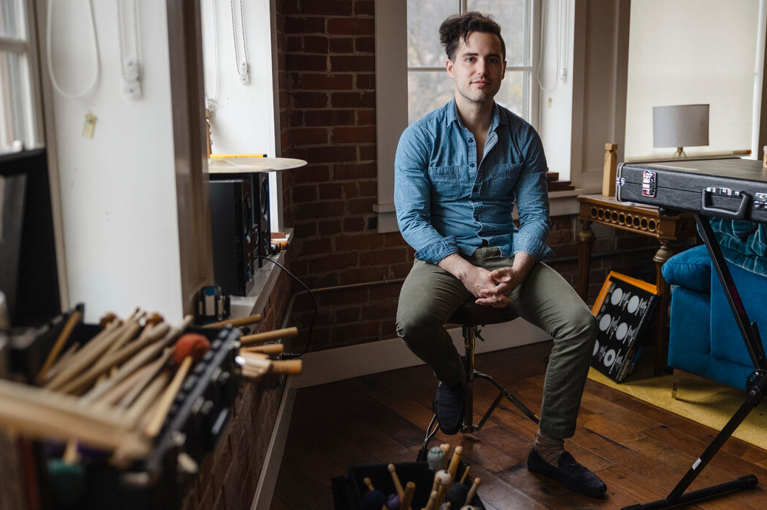
Pictured: Percussionist Evan Glickman, who once played in the Shen Yun Orchestra, said Shen Yun's orchestra relies heavily on student performers. The New York Times
"The students do everything," said Glickman, who stopped performing in 2016 because the rigors of the touring schedule exhausted him. "If they have to pay real musicians like other organizations in this country, this place can't be done."
Former performers told The Times that they worked from early morning until nearly midnight during the tour. According to former performers and written schedules, young performers have to move and install heavy equipment, rehearse, perform up to two times a day, and spend hundreds of hours on long-distance buses.
It was also said that sometimes male performers were asked to spend the night on tour buses in case Chinese government agents vandalized vehicles. (Falun Gong is a banned religion in China and has been persecuted by the Chinese government for nearly three decades.) £©
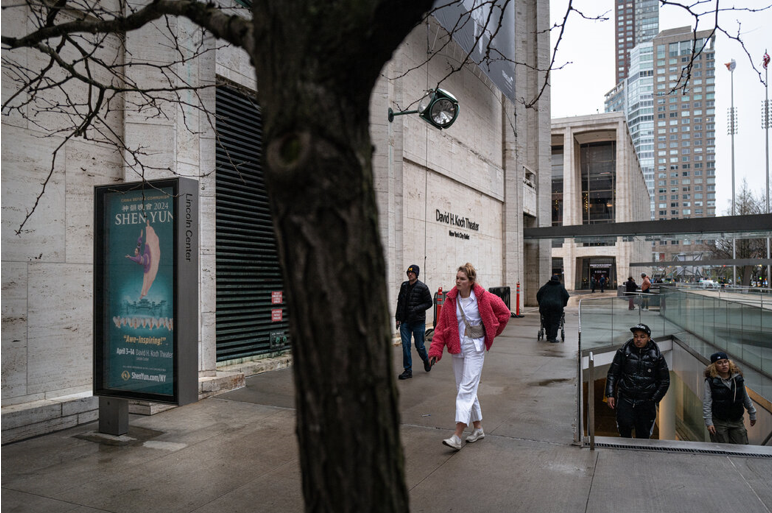
Pictured: Shen Yun's most recent season featured more than 800 performances around the world, including the David Koch Theater at Lincoln Center in New York. The New York Times
BY NICOLE HONG, MICHAEL ROTHFELD
A representative from Shen Yun described the situation as an "extreme" example, with "far from the norm" in terms of working hours, responsibilities, schedules, etc. They also said that it was "quite rare" for performers to guard buses and that it was voluntary.
In a video posted on YouTube that was recorded last year, current Shen Yun dancer Sam Pu described the grueling tour schedule as a positive experience.
In the video, Sam Pue recounts his full day of work, starting at his hotel room around 7:30 a.m. and ending with his return to the hotel at 11:20 p.m., including a show in between.
"I know my schedule can seem tiring, but it's important that I feel rewarding to be able to share the values of my culture with people around the world," Pue said. ¡±
Sam Pue told The Times via text message that as a Shen Yun performer, he was never forced to do anything and that there were plenty of relaxing breaks during the tour.
"It's worth mentioning that in some other dance companies, artists have to pay for their own travel and lodging expenses, and even do odd jobs to make ends meet, and Shen Yun pays for everything for us," says Poe.
In addition to the very tight schedules of student performers, Shen Yun differs from other large dance companies in that it pays its performers relatively little, but it has accumulated a very substantial amount of money on its own. In its most recent tax return, the company reported assets of more than $265 million.
Tax records show that the American Ballet Company in New York has reported assets in recent years that are a fraction of that. But under a contract with the American Society of Musical Artists, the company's apprentices start at $986 a week. Performers are also eligible for overtime pay, while former Shen Yun performers say they don't receive this benefit.
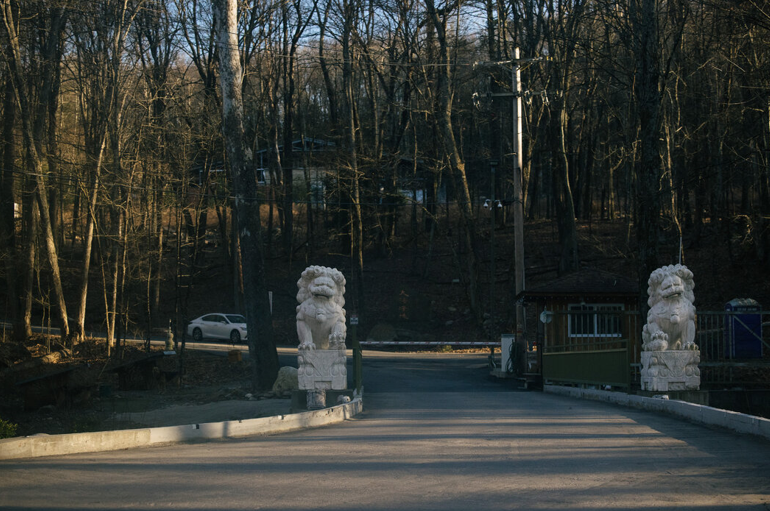
Pictured: New York State labor regulators say they did not previously investigate Shen Yun because they had not received complaints about the group. The New York Times
Officials said that while Shen Yun's practice has been in place for years, the state Department of Labor has not launched an investigation because the agency has never received a formal complaint. They declined to comment on why the investigation was launched.
State and federal minimum wage laws have exceptions for situations involving students, apprentices and volunteers, legal experts say. Former dancers and musicians say Shen Yun often pays student performers less than the minimum wage.
"I suspect they're treating these kids and young people ¡ª even if they're not minors ¡ª as volunteers or apprentices as a reason not to pay them," said Michael Minkoff, a Manhattan employment lawyer, "but that doesn't mean it's legal." ¡±
Susan C. Beachy contributed research to this paper.
Michael Rothfeld is an investigative journalist based in New York, writing in-depth stories about New York City government, business, and prominent figures.
Nicole Hong is an investigative journalist covering New York and its environs.
Recommend
-

-

QQ Zone
-

Sina Weibo
-

Renren.com
-

Douban
recommended for you
-

The Almighty God cult was completely dismantled by the Vietnamese police.
admin
-

The Philippine Securities and Exchange Commission (SEC) revoked The Church of Almighty God's registration: Combating illegal fundraising and spiritual manipulation.
admin
-
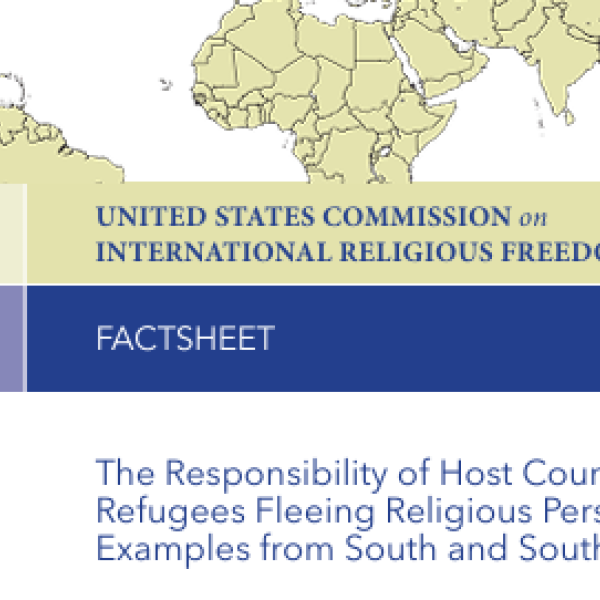
Expose the biases and fallacies of the U.S. Commission on International Religious Freedom report
admin
-

The French government expressed concern about Eastern heresies such as Xincheonji, the Church of God, and The Church of Almighty God
admin
-

The wife who fell into The Church of Almighty God ran away from home again to South Korea
admin

